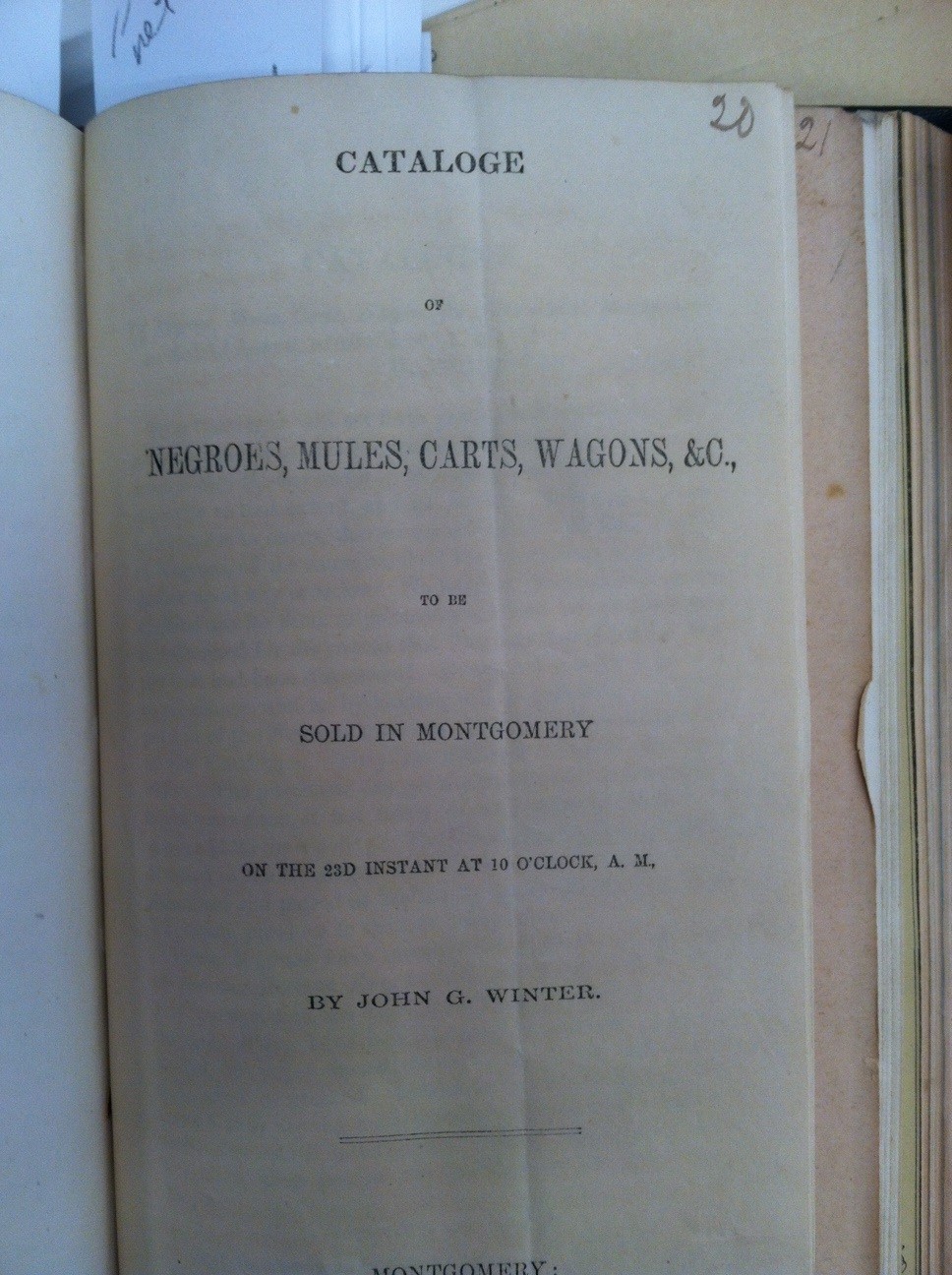One of the oldest collections at Yale, the Slavery Pamphlets archive comprises over 750 booklets and tracts, bound into 80 volumes, from predominantly American and European regions. The collection is now being fully catalogued for the first time, and in the process, acquisitions assistant Eileen Hackett and veteran rare book cataloger Stephen Young discovered a rare pamphlet: a “Catalogue of Negroes, Mules, Carts, Wagons &C.” compiled by one “John G. Winter” from Montgomery, Alabama, the pamphlet presents an unusually formal listing of enslaved persons - unusual in that most advertisements were presented in the medium of newspapers or broadsides. The formality of the pamphlet forms a disturbing correlate to the individuals listed for auction, described in the auctioneer’s introduction with the following pronouncement: “so valuable and desirable a gang of negroes… has never been brought together upon any occasion.”
Asked his reaction when he saw the pamphlet, Young said, “My hair almost stood on end as I saw this title page lumping slaves together with ‘mules, cart, wagons’ and then skimmed the 115 descriptions of slaves giving their age, sex, skills, strengths and defects. How would I have reacted if I had had the chance to buy and control another person? I shudder to think. Why was this item not previously cataloged along with the other items in the volume, and why was there not a record for it in OCLC WorldCat?”
The pamphlet illustrates the bureaucratic and economic processes imbricated in the slave-owning industry, from health checks carried out by “the Insurance Company’s Physician,” the insurance policies themselves, to the transactional negotiations in buying and selling chattel (the terms of sale promise a “discount of five per cent” for cash sales).
Bearing names such as “Kentucky Henry” and “Little Charley,” the slaves are described in listings with uniformly dehumanizing language emphasizing physical characteristics, work skills, and temperament – all important details to potential buyers. The pamphlet remained unrecorded in WorldCat – the catalogue database used by over 70,000 libraries across the world – until now, and takes its place as a singular record of American history at the Beinecke.
A record for this item can be found here. Readers can also make a request to see the item in Beinecke’s reading room from the record.
-Phoenix Alexander GRD ‘18
